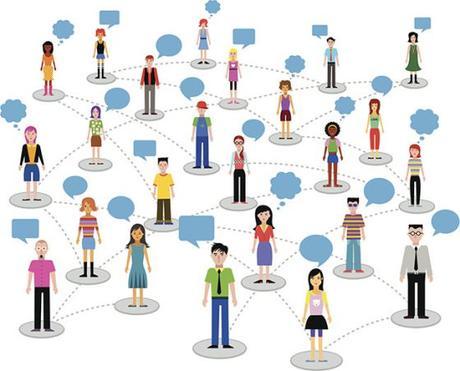
Apart from traditional conferences, which tries to spread and share knowledge, innovation and change are mostly attributed to networking and informal contacts; however, there are some ways to help to rely less on informal networking.
Large Scale Interventions
Large Scale Interventions (or Large Group Facilitation) are ways of active influencing groups from 30 to 2000 persons in order to initiate change. It is a deliberately planned, organization-wide effort (or even across organizations) to increase effectiveness or to enable achieving strategic goals.
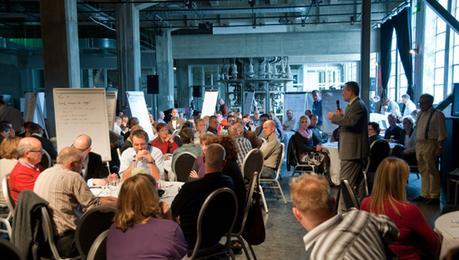
Examples are:
• raising awareness of medicine safety at a medical conference
• establishing trust and cooperation between enterprises, research labs, universities and governmental agencies
• transfer of knowledge or innovations at industrial conferences
• improving social cohesion in neighborhoods
There are several forms of Large Group Interventions:
• Open Space
• World Cafe
• Six Thinking Hats
• Future Search
Open Space
Many people report that the most useful parts of a traditional conference are not the presentations held by expert speakers, but the networking and informal contacts in between. So why not skip the expert speakers and just limit a conference to what the participants are most interested in?
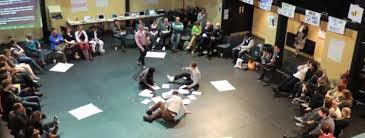
Open Space Technology is an approach to purpose-driven leadership,including a way for hosting meetings, conferences, corporate-style retreats, symposium, and community summit events, focused on a specific and important purpose or task — but beginning without any formal agenda, beyond the overall purpose or theme.
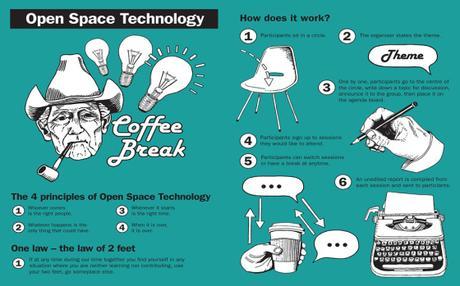
In Open Space Technology (an unconference) the attendees create the working agenda, as individuals post their issues in bulletin board style. Each individual “convener” of a breakout session takes responsibility for naming the issue, posting it on the bulletin board, assigning it a certain space and time to meet, and then later showing up at that space and time, kicking off the conversation, and taking notes. The conference is nearly totally self-organized, see here for examples.
World Cafe
The “World Café” is a structured conversational process intended to facilitate open and intimate discussion, and link ideas within a larger group to access the “collective intelligence” or collective wisdom in the room.
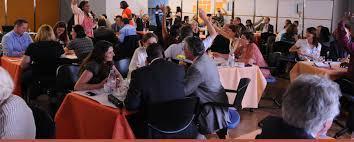
Participants move between a series of tables where they continue the discussion in response to a set of questions, which are predetermined and focused on the specific goals of each World Cafe.
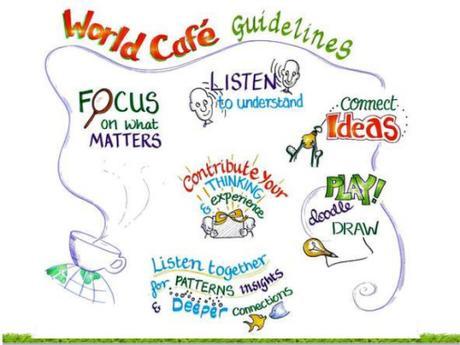
The process begins with the first of three or more twenty-minute rounds of conversation for the small group seated around a table. At the end of the twenty minutes, each member of the group moves to a different new table. They may or may not choose to leave one person as the “table host” for the next round, who welcomes the next group and briefly fills them in on what happened in the previous round. See here for examples.
Six Thinking Hats
A lot of group discussions, especially when the group becomes large, bog down in arguments and “scoring winning points”. As a result, discussion goes on for hours and participants lose interest.
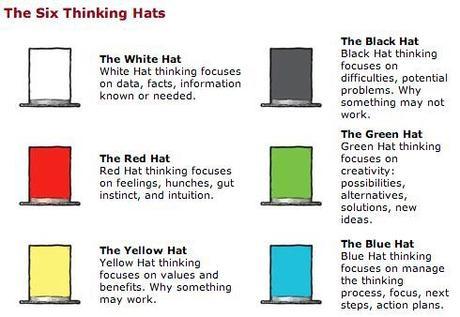
A way to prevent arguing and replacing it by exploration of a subject, the method of the Six Thinking Hats is used. It provides a means for groups to plan thinking processes in a detailed and cohesive way, and in doing so to think together more effectively, resulting in 3 times more ideas in 3 times less time. See here for examples.
Future Search
Future Search is the name for a 3-day planning meeting that enables people to cooperate in complex situations, including those of high conflict and uncertainty. The method typically involves groups of 40 to 80 people in one room and as many as 300 in parallel conferences.
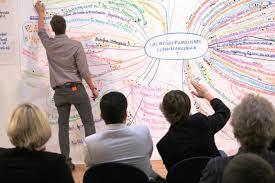
People follow a generic agenda, regardless of topic. It consists of 4 or 5 half day sessions on the Past, the Present, the Future, Common Ground, and Action Planning.
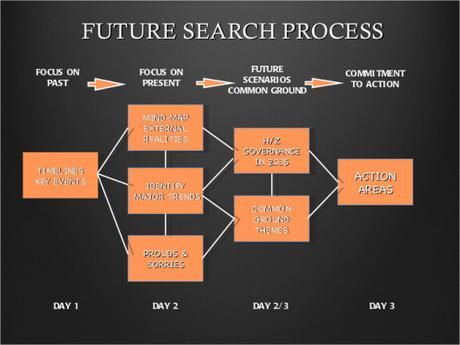
Future Search methods have been used to design an integrated economic development plan in Northern Ireland, work with a Hawaiian community to reconnect with traditional values, and determine the future of urban mobility in Salt Lake City, Utah, among many other examples.
Save
